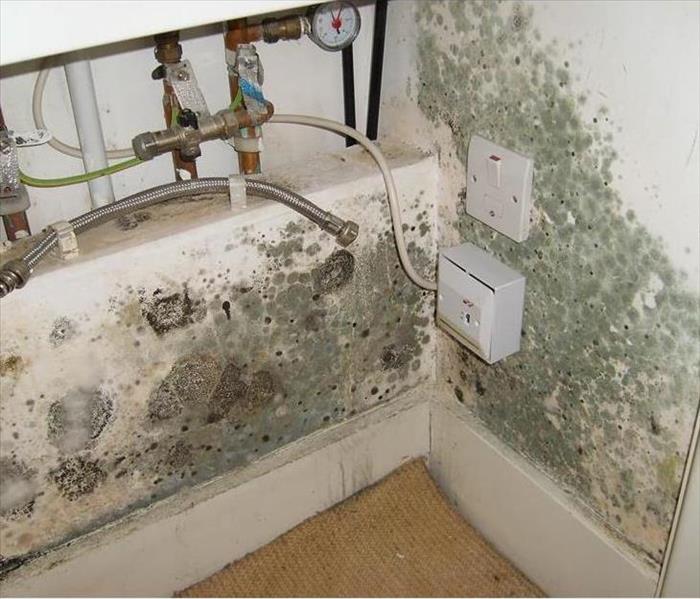Is Your Company Covered for a Mold Claim?
4/28/2021 (Permalink)
The right amount of general liability insurance for your company protects you from life's unexpected moments. One of these surprises could be the presence of mold in one or more corners of your property. What exactly, though, will your insurance cover for a mold outbreak? Mold insurance claims are often downright confusing, so it is always a good idea to have a detailed discussion with your agent at least once a year. Policies and coverage can change without warning, so it is best not to assume you have extended mold coverage for your business.
Beware of Exclusions
Mold exclusions in policies began showing up in the 1990s in response to some hefty awards handed out to policyholders. It is called a "fungus exclusion" and puts limits on the following mold insurance claims:
- Loss or damage caused by mold
- Loss or damage caused by dry rot or bacteria
- Loss or damage caused by mold spores, toxins, smells, and by-products of fungi
Property owners can still collect on a mold claim through a few exceptions to the fungus exclusion. A term known as Limited Fungus Coverage applies to the cleanup and repair of damage caused by a mold outbreak. In short, reasonable expenses for mold remediation are allowed in these cases.
Watch Out for Policy Changes
In addition to speaking with your insurance agent, ask about the availability to pay higher premiums for more robust coverage. In all cases of mold growth, call in a mold mitigation team that will arrive and begin the remediation process. A mold outbreak moves quickly, spreading through the HVAC system and other pathways. A rapid and professional response cuts down on costs. You can limit your mold insurance claims with prompt action and keep expenses and damages below the $15,000 normally approved for damages. This limit for damages is an annual limit and includes expenses associated with mold mitigation.





 24/7 Emergency Service
24/7 Emergency Service
